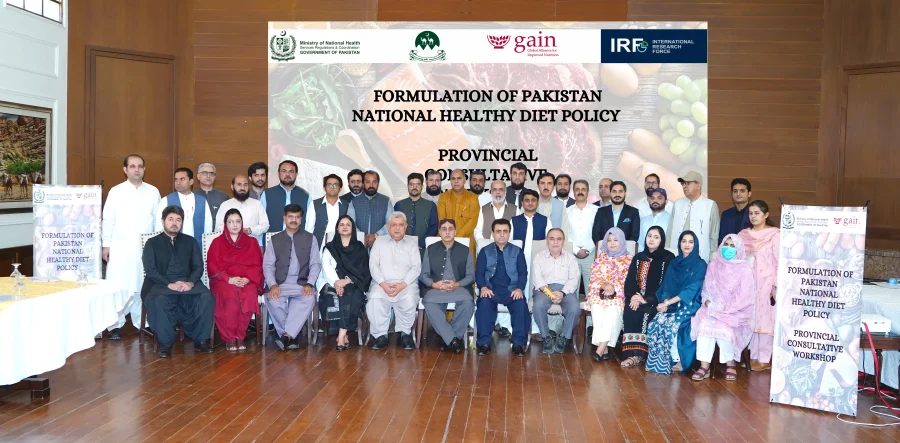The Ministry of National Health Services Regula-tions and Coordination (MoHSR&C) has taken a significant step towards initiating the policy formu-lation process for the Pakistan National Healthy Diets Policy (PNHDP) by engaging the Balochistan stakeholders through the first consultative session held in Quetta.
With technical assistance from the Global Alliance for Improved Nutrition (GAIN), the Ministry con-vened key representatives from federal and Ba-lochistan government departments, academia, re-search institutions, development partners, and nutri-tion entities. This collaborative effort aims to shape a policy framework that addresses the unique die-tary and health needs of Pakistan’s diverse popula-tion, incorporating local insights from various prov-inces.
During the workshop, Sardarzada Faisal Khan Ja-mali, Minister for Health, Government of Balochis-tan, emphasized the importance of this consultation as a crucial step towards addressing malnutrition and poor dietary practices. He expressed the Health Department of Baluchistan’s commitment to col-laborating with key stakeholders to develop a com-prehensive policy that meets the urgent needs of all, particularly vulnerable populations in Balochistan.
Selah Muhammad Baloch, Secretary of the Health Department Balochistan, highlighted the initiative’s critical role in addressing food availability and qual-ity, especially for children’s health. He acknowl-edged the pivotal technical support from partners like GAIN and the commitment from the Balochis-tan health department to combat child wasting, food safety concerns, and waterborne diseases, under-scoring the necessity of prioritizing healthy diets in the policy agenda.
Faiz Rasool, Head of Policy and Advocacy at GAIN, pointed out the severe malnutrition chal-lenges in Pakistan, where 40.2% of children under five are stunted, and around 83% (192 million) of people cannot afford a healthy diet. He emphasized the need for a shift in policy priorities, suggesting measures such as imposing taxes on unhealthy diets and reducing taxes on healthier, more nutritious commodities. He also emphasized the importance of stakeholder inputs to incorporate an inclusive policy formulation approach.
Dr. Khawaja Masuood from the Federal Ministry of Health noted that previous efforts to tackle malnutri-tion in Pakistan were poorly coordinated and limited by factors such as resource constraints and climate change.









